In this article, we interview Kenzie from New York about her service dog, Maisie. Kenzie did online puppy lessons with us and then sent Maisie to us for a customized four week board & train. We’re so honored to have such an amazing client and really enjoyed doing this interview with Kenzie!
1- What does Maisie do for you as your service dog?
Maisie is task-trained to help me manage multiple life-altering conditions I have. She alerts to elevated heart rates/irregular breathing, provides tactile stimulation, and performs behavior interruption and dissociation interruption.
2- What does her daily routine look like?
Maisie lives a very structured life. Each morning we get up at 5:30, and after I exercise, I exercise Maisie. Her exercise generally looks like a long walk, urban agility, and/or high-intensity game of fetch. I incorporate short training sessions into these to work her mind as well. Maisie is a relatively high-energy dog, and I make it a priority to meet her needs before asking her to work all day with me. After we exercise, I begin my work day. Maisie has two options – either settling quietly by my feet or laying on her place bed in my office. Without disruption, Maisie can settle for as long as three-to-four hours at a time. If I have breaks in the work day, I will use these to do some more short training sessions (rapid OB or trick training) with Maisie. After work, we typically will go on another walk to stretch out our legs after sitting all day, and I will reward Maisie with a play session. At night, Maisie will either be in a down-stay, in her crate, on place, or doing some AODN. She is not allowed to roam the house aimlessly. Every night, she sleeps in her crate.
All in all, on an ideal day Maisie receives around an hour+ of exercise a day, and we train for a similar amount of time. It is important to note that there are certainly days where I am too busy or we do not have enough time, but my expectations remain the same for Maisie and her work. At this point, she still works for all of her food, so rather than having designated meal times, she is fed through our training sessions throughout the day.
3- Why did you choose a Golden Retriever?
I grew up with a golden retriever and have always loved the breed. I like that they are biddable, have good working drive, are great family dogs that can also be couch potatoes. With a service dog, it was important to me to have a dog that could go-go-go all day, but also stay in bed with me if I was having a bad health day. Goldens tend to be eager to please, and I knew that as a first-time handler a golden or a lab would set me up for more success rather than a hard-headed, high-drive dog.
4- Handler-training a puppy for service work is no easy task. Do you have any advice for others in your same shoes?
Handler-training is SO hard, and it is not for everyone. It is important that before you consider handler-training, you ensure that you have sufficient time, resources, financial means, and most importantly access to a reliable, reputable trainer. Puppy-raising in general is a lot of work, but raising a service dog prospect requires even more commitment and time. When I look back at how I raised Maisie, a lot of it was beginner’s luck, and there are some things I wish I would have done differently and will do differently with my next prospect. A few things I would note:
Exposure/confidence building cannot be stressed enough. As soon as Maisie came home, I made an effort to expose her to as many sights/sounds/places as was safely possible. I made all her interactions very positive to ensure that I was building bomb-proof confidence that she would need later on. Service dogs get placed in all sorts of odd and less-than-ideal situations, and I wanted nothing to phase her. I socialized her with safe, trusted dogs, and advocated for her in situations I felt were unsafe. As she got older, I stopped allowing her to interact with people/other dogs unless she was told to “go say hi” – as a result, she has great neutrality around dogs/people.
Consistency is everything. Consistency in the way you communicate with the dog, consistency in your expectations (with obvious progression as they advance), consistency in the time/effort you put into the training. Consistency goes hand in hand with structure – while Maisie has earned more freedom, I have remained consistent with implementing structure in her life. I have found that because of this, we need to “touch up” on things less and less.
For me, I have learned that a well-trained Maisie is the result of lots of repetitions over long periods of time. For example – Maisie has a great heel. She checks in often and unprompted; she has great rear-end awareness and handler awareness. She rarely deviates out of the proper heel position. Why? Because this is something we have practiced every single day since she came home at 7 weeks. Whether I realized it or not, every time we go on walks (twice a day), we practice heeling. If Maisie has been with me since she was 7 weeks old, that means she has practiced heeling 1,340 times. Whenever I get frustrated that a command or a behavior isn’t where I want it to be, I ask myself if I have put as much effort into that command as I have heeling. The answer is always no – so I stop complaining and keep training.
5- You considered washing Maisie out of service work at one point. Why? What made you change your mind?
Maisie has a lot of energy – more energy than is typically preferred in a service dog. As a first-time handler, at first I felt like Maisie was “too much dog” to be a service dog. She had an incredibly hard time settling and focusing in environments that excited her. She could run around, go on a hike, go swimming, play fetch, and still act as if she hadn’t exercised. As I became more educated, and as we worked with Valor, I learned to harness Maisie’s energy. I took that drive and put it to work, and she became a different dog. Once I learned how to meet her needs mentally, all thoughts of washing disappeared. Valor taught me how to channel her energy in a productive way, and in turn I gained more confidence in her abilities.
6- Do you run into fake service dogs a lot? How do you handle it?
Yes – all the time. It frustrates me and makes me sad that people are inconsiderate and entitled – but such is life. When we see a fake service dog, I do my best to steer clear of them. If someone is faking a service dog, you can likely guarantee that they haven’t given their dog the proper training, either. More often than not, the dog displays some sort of reactivity. If I cannot avoid passing them, I put my body in between Maisie and the other dog, so that if it were to lunge at her, I could protect her and advocate for her. I have learned that unfortunately people who fake service dogs likely cannot be reasoned with, and so the very best thing I can do is protect Maisie in that situation. If the dog truly affects myself and Maisie, I will say something.
7- What are you working on right now with Maisie?
Right now we are working on a few things – turning off/on the lights, competition heeling, and reshaping Maisie’s hold. Maisie loves free-shaping, and working on new commands/behaviors tires her out like nothing else.
8- What is something most people might not consider when it comes to using a service dog?
While having a service dog can be so helpful and beneficial in certain ways, it is not the most convenient. Small errands will turn into longer trips, a bite out to eat a restaurant can turn into a frustrating access issue, and walking down the street can make you feel like you are a circus animal on display. People see dogs all the time, but for some reason when people see a vested dog, they tend to forget their manners. People talk about me and Maisie as if I cannot hear them – it’s a bit odd! The average person really has no idea how to act around a service dog, and they certainly do not understand proper protocol. For me, the work that Maisie does far outweighs the annoyance of strangers pointing and talking about me, but it is definitely something to consider.
9- Any plans for another dog? If so, what breed (and why) and what would your plans be for the dog?
Yes! I will always have a golden as a service dog. Maisie likely won’t need to retire until she is much older, but I will probably get another prospect once she is four. My other dream is to own a working line GSD – either Czech or DDR – trained for personal and home protection. I would love to become involved in bite work sports. I am fascinated by the level of training and expertise it takes to train those dogs, and I would love to work them every day.
10- Is there anything else you’d like to share with us?
While I implemented a lot of Maisie’s training at home, I cannot stress enough how much Valor has done for us as a team. Handler-training feels like 30% training the dog, and 70% training the handler. Dogs make things simple, people make them complex. I brought my fears, worries, ignorance, and lack of education to the table when training Maisie, and Valor helped us clear up our communication, strengthen our relationship, and ultimately become a great working team. If you are handler-training your service dog, or training your pet dog, the very best thing you can do for that dog is to work with a reputable trainer who has the dog’s best interest in mind. If you make the investment in proper training, learn and implement what is expected of you as a handler, you’ll reap those benefits with a well-behaved companion. Amy and Jenna’s work with Maisie allowed me to have my independence back – and I am so grateful!
What an amazing team! Kenzie, thank you for taking the time to do this interview and for sharing such inspirational and motivational information with us. Keep up the great work!
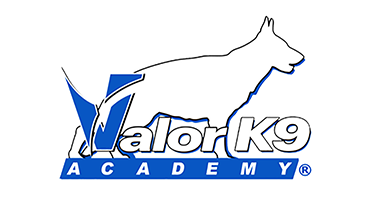
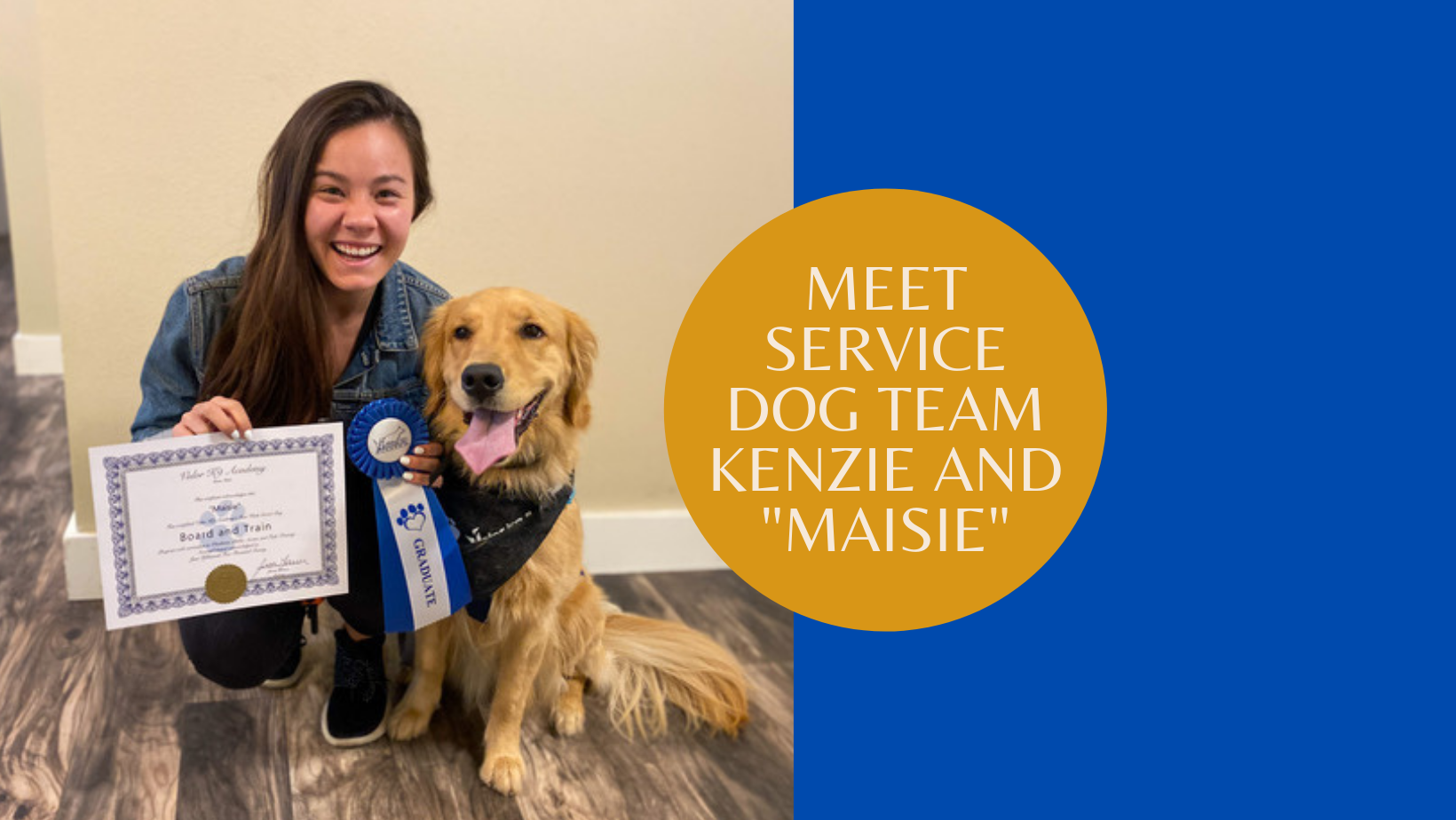








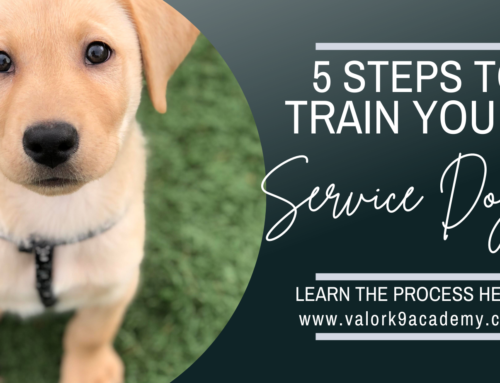
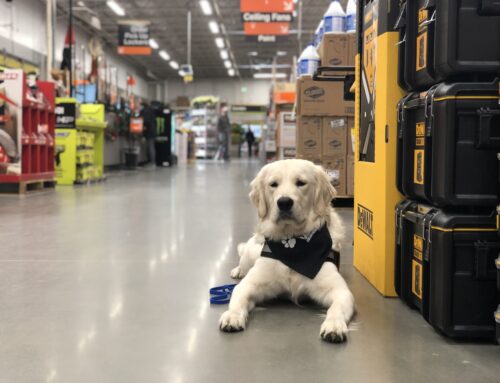
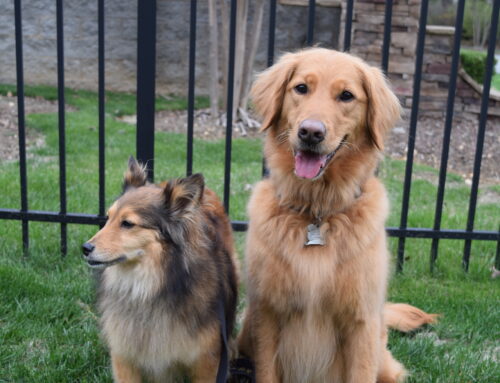
Leave A Comment